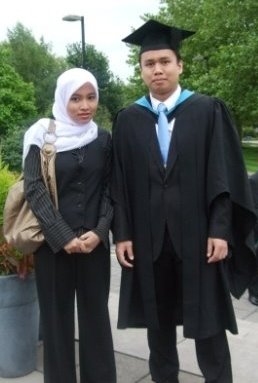This is my response to Syaz. It took me sooo long coz I was on holiday for 3 weeks (Today's my first day after the break) and I didn’t want to do anything that’s work-related.
An interviewer (this guy’s quite famous, sometimes kuar paper) once told me – "Your degree only means that you are capable to learn. What you’re learning now is just the tip of the iceberg. You will only start learning when you start working". This statement was echoed by one of the bosses here – "that a degree is just a signal to the employers that you’re capable of achieving/meeting some standards/levels".
I strongly agree that you only start doing+learning the real thing only when you start working. While in Uni, u learn that A+B=C, but you’ll find out later that there are so many combinations that could make A and B. So your concern then would no longer be A+B=C, but rather what is A or B. That being said, for certain fields, you need to have some basic knowledge (like the very basic equation of A+B=C) on what they’re all about before you can actually get into them. Like engineering, or dentistry, or law. Other jobs, like in sales, or customer services, might not require a specific degree, but you need to have THE personality. However, I do think that, a good accountant (like a really smart one) would have no problem becoming an engineer with proper training and guidance from the snrs – its just that the time involved to make him/her a good one would deter any firms from actually doing this.
However, for our dept, for the positions that we’re offering, we don’t care about what you did in uni coz what you’re gonna do is not taught in classes. We do a lot of research here and research is not something that you can just sit and learn. You learn by doing and use your own creativity to put together pieces of info you get from everywhere. Lotsa reading is required, but spotting what’s relevant is a skill – and some ppl would spot more things than the others (or quicker). There will be simple formulas to help you with the analysis. But how the analysis itself is done will depend on your own style – with guidance from bosses and colleagues of course - as different ppl would have different things/angles that they think should be highlighted. At the beginning, it would be harder for, say, engineers (I love using engineers as an example for the very reason I had highlighted in the previous post), but there’s always internet to help you with the definitions and before actually doing the job, you’ll undergo in-house training on Corp finance. You’ll also be equipped with few thick books on corp finance. And there will be a whole team of ppl yg x kedekut ilmu to help you. And here, attitude matters. Another boss said to me - If you have THE attitude, you're half-way there already
The dept is made of few teams and the research team is just one them. But it doesn’t mean that the research team only does research. There are many other exciting things too. I only talk about what we do in general here. As for the details - ONLY for those interested. I cannot say anything specific without some sort of clearance from my boss and I do understand if you find what we do boring (based on the para above). It doesn’t tell you much, really.
And if I may add something - If you wanna work with a team of high-flyers, then this is the place to be. (I am not one, I'm just average)...And it scares me, everytime, just thinking about how smart (hardworking plak tu!!) everyone else is.
Have I actually answered Syaz's nyer soklan? I dont know la..huhuhuh..
Friday, October 09, 2009
Posted by miiRaLeEs at 9:11 am
Subscribe to:
Post Comments (Atom)

1 comments:
glad you took the time to answer my questions....while i was doing my internship last year..i was so worried that i didn't have the tools to do the job..but it went well enough i guess...
the imp thing now is to get my degree huh...and worry bout working problems later..
Post a Comment